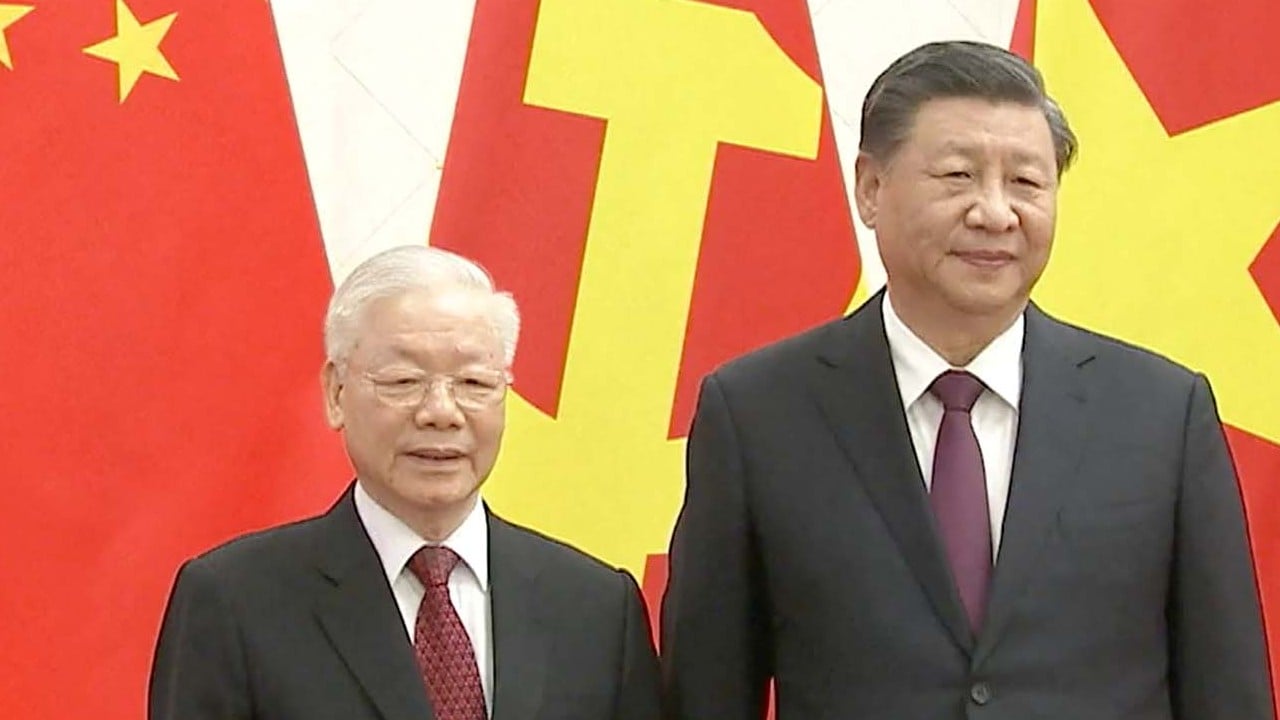Advertisement
China, Vietnam vow closer ties, to ‘manage’ South China Sea dispute in joint focus on external challenges
- Joint statement from Vietnam’s Communist Party chief Nguyen Phu Trong and Chinese President Xi Jinping contains new section on communist-ruled states
- Historic third term is ‘special bond’ between the two leaders and fuels their suspicions about regime change promoted by the US, analyst says
Reading Time:4 minutes
Why you can trust SCMP
32

Beijing and Hanoi have agreed to “properly manage” the South China Sea and other disputes and join hands in tackling external challenges – including “colour revolutions” and criticism of their human rights records – as Vietnam continues its balancing act amid a deepening US-China rivalry.
Vietnam’s Communist Party chief Nguyen Phu Trong wrapped up his three-day visit to China on Tuesday with the release of a joint declaration with Chinese President Xi Jinping, pledging to push their special friendship of “comrades and brothers” to a new level.
Trong was the first foreign leader to meet Xi in Beijing after he secured a precedent-breaking third term as leader of the Chinese Communist Party at its 20th national congress last month. For Trong, who also secured his third term as party boss last year, it was the first trip abroad after suffering a stroke in 2019.
Although tensions over the South China Sea dispute have largely eased since 2019, it remains the most challenging issue between the socialist neighbours, both of which claim a large part of the contested waterway.
Xi “exchanged in-depth and candid views on maritime issues” with his Vietnamese counterpart, according to the joint declaration released on Wednesday.
They agreed that it was “crucial to properly manage differences and maintain peace and stability in the South China Sea” and for both sides to “refrain from taking actions that complicate the situation and aggravate disputes”.
They also vowed to “actively negotiate transitional and temporary solutions that do not impact their respective positions and propositions”, while seeking mutually acceptable “basic, permanent solutions”.
Advertisement
